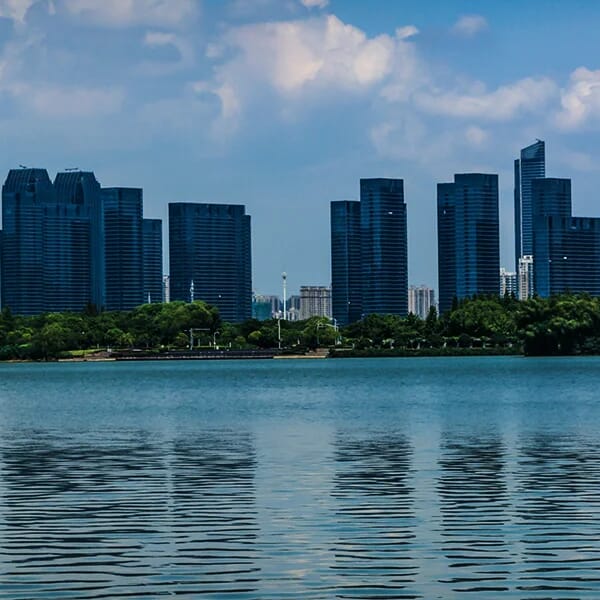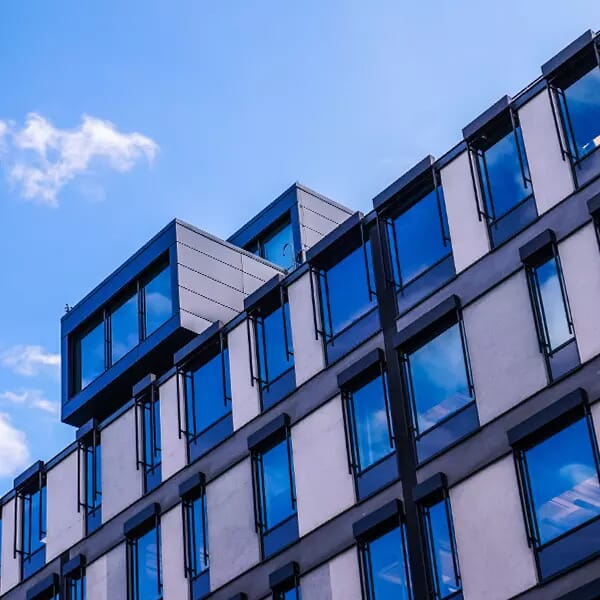 Credit: Shutterstock
Credit: ShutterstockCentral American Hospitality Braces for COVID-19 Impact
April 6, 2020Real Estate
COVID-19 is making its way through Central America and the Carribean, and real estate players are looking to the European and Chinese markets to understand the effect it has had on the industry. The main takeaway from last week’s discussion is flexibility.
Real estate leaders are looking for new strategies and increasing their flexibility to adapt and survive the impact of the pandemic. Banks, tenants, landlords, investors and developers must be flexible and look for terms that may not be win-win at the moment, but could be better than lose-lose in the future. GRI Club members from Panama, El Salvador, Guatemala, Costa Rica and other countries in the region discussed the impact Coronavirus could have in each sector as well as share ideas as to how to mitigate incoming risks.
During a crisis, management teams have to secure cash flows and operations, but members agree that they are having to analyze terminating contracts within their teams. They discussed that discharging personnel in hospitality is accompanied by very important costs, especially if the future is not clear. As experience and customer service plays a vital role in hospitality, having to reinvest in hiring new personnel and training can be an arduous task. Some countries are adopting measures to keep companies from cutting jobs, for example Costa Rican government's strategy is to conserve jobs and it has so far managed to keep a job loss curve low.
At the moment, it is up in the air which segment will recover first, whether its corporate or leisure travel. People will be very bored after quarantine and at the same time, business will have to continue with many unfinished deals and projects. The market will bounce back, participants had no doubt about that, but the question is when. The hospitality sector will have some assets that are in distress and others will be sold. This will whet the appetite of private equity investors.
When it comes to tenant risk, countries are adapting different approaches and policies. For Guatemala, it is the first week on lockdown, there is more to go still. Some GRI members from Guatemala shared that there are different stages in which companies are operating. Those that are 100 percent closed, are charging 50 percent of the rent. Those that are working half way, meaning restaurants with no people but offer delivery services, they are getting a 15-30 percent discount on the rent. The stores that are open full time, such as supermarkets and pharmacies, are paying 100 percent of their rents.
Members also discussed that COVID-19 is creating opportunities in new products related to fighting the pandemic such as masks. Members from Panama shared that service and manufacturing spaces will evolve as we realize we cannot depend fully on the Chinese market. In the future, new investment will pour into each country to help fill those gaps. The industrial sector is still moving, particularly to the pharmaceutical sector.
Members from Guatemala shared that they have yet to experience any preference change, and that the demand for houses has kept the same rhythm of absorption. The transformation has been due to the land costs and pricing.
But will trends change completely when the crisis passes? Co-living is a growing trend and there are many projects in presale states in Panama. But members believe that given the impact COVID-19 has had on the population, there are many that no longer want to live with other people. GRI Members see a trend where consumers will want to go back to having their own space and people will appreciate their homes more.
Join the dicussion! See the next LatAm eMeetings here.
Real estate leaders are looking for new strategies and increasing their flexibility to adapt and survive the impact of the pandemic. Banks, tenants, landlords, investors and developers must be flexible and look for terms that may not be win-win at the moment, but could be better than lose-lose in the future. GRI Club members from Panama, El Salvador, Guatemala, Costa Rica and other countries in the region discussed the impact Coronavirus could have in each sector as well as share ideas as to how to mitigate incoming risks.
Hospitality Hardest Hit by COVID-19
The situation for the hospitality sector has become very complicated. Members from Costa Rica with investment in hotels throughout the region shared that hotels are operating with less than 10 percent occupation levels, and that the environment is roughly the same throughout the entire region. Nevertheless it is till too early to decide whether or not hotels should be shot down completely, which includes discharging the staff.During a crisis, management teams have to secure cash flows and operations, but members agree that they are having to analyze terminating contracts within their teams. They discussed that discharging personnel in hospitality is accompanied by very important costs, especially if the future is not clear. As experience and customer service plays a vital role in hospitality, having to reinvest in hiring new personnel and training can be an arduous task. Some countries are adopting measures to keep companies from cutting jobs, for example Costa Rican government's strategy is to conserve jobs and it has so far managed to keep a job loss curve low.
At the moment, it is up in the air which segment will recover first, whether its corporate or leisure travel. People will be very bored after quarantine and at the same time, business will have to continue with many unfinished deals and projects. The market will bounce back, participants had no doubt about that, but the question is when. The hospitality sector will have some assets that are in distress and others will be sold. This will whet the appetite of private equity investors.
Shopping Centers Mitigating Risks
Members agreed that retail in the region will continue because it is not as mature as the US or European markets. The region is not ready to rely 100 percent on online sources. Various members discussed that the worst that can happen to a shopping center is that it loses all its tenants. Right now they must keep their image and be flexible with their tenants.When it comes to tenant risk, countries are adapting different approaches and policies. For Guatemala, it is the first week on lockdown, there is more to go still. Some GRI members from Guatemala shared that there are different stages in which companies are operating. Those that are 100 percent closed, are charging 50 percent of the rent. Those that are working half way, meaning restaurants with no people but offer delivery services, they are getting a 15-30 percent discount on the rent. The stores that are open full time, such as supermarkets and pharmacies, are paying 100 percent of their rents.
Industrial Remains Afloat
At the moment the industrial sector remains active throughout most of the region, but members say that it is important to analyze the products that are being manufactured in our assets and industrial parks to have a better understanding of how it will impact us. In Costa Rica for instance, there are various aesthetic and consumer goods manufacturers in our free trade zone that are taking a hit because people are not buying at the moment.Members also discussed that COVID-19 is creating opportunities in new products related to fighting the pandemic such as masks. Members from Panama shared that service and manufacturing spaces will evolve as we realize we cannot depend fully on the Chinese market. In the future, new investment will pour into each country to help fill those gaps. The industrial sector is still moving, particularly to the pharmaceutical sector.
Housing Trends to Change after COVID-19
Members from different countries agreed that there is great potential that consumers will go back to renting or acquiring homes instead of apartments. People want to use all of the amenities of their home, and not depend on what happens in a building complex. This experience could move people back to the suburbs and away from city centers, looking for green space and basic needs such as internet service. While there is some speculation, many members agree that it is too premature to see how the sector will mobilize.Members from Guatemala shared that they have yet to experience any preference change, and that the demand for houses has kept the same rhythm of absorption. The transformation has been due to the land costs and pricing.
But will trends change completely when the crisis passes? Co-living is a growing trend and there are many projects in presale states in Panama. But members believe that given the impact COVID-19 has had on the population, there are many that no longer want to live with other people. GRI Members see a trend where consumers will want to go back to having their own space and people will appreciate their homes more.
Join the dicussion! See the next LatAm eMeetings here.







